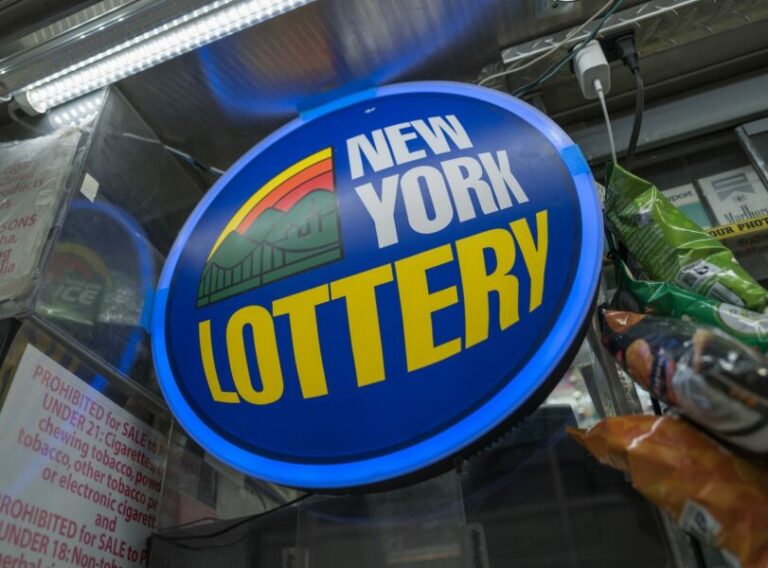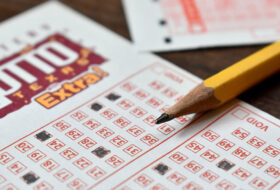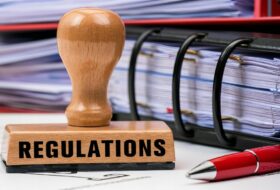
New lottery ticket courier rules in New York mean sites, including Jackpocket and Lotto.com, now have to tell lottery players that the sites and apps are only middlemen. In other words, advertising can no longer say New Yorkers are “playing” the lottery on the apps because what customers are actually doing is hiring a middleman to buy their tickets from a licensed retailer.
Technically, the Jackpocket and Lotto.com employees buying the tickets app users paid for are the ones actually playing the lottery. So marketing and advertising language needs to change now that the New York State Gaming Commission (NYSGC) adopted lottery ticket courier rules in a 5-1 vote yesterday.
Robert Williams, executive director of the New York State Gaming Commission (NYSGC), spoke during yesterday’s commission meeting.
Before commissioners passed the rules governing advertising by lottery courier services, Williams said:
The proposal aims to prevent false, deceptive, or misleading advertising – such as stating or implying that the customer may ‘play’ the lottery through the courier services platform or purchase a lottery ticket directly from the courier service.
A courier service, instead, may market its actual services: fulfilling orders for the purchase of a lottery ticket from a licensed lottery sales agent and delivering tickets to the customer.
Lotto.com didn’t immediately reply today to a request for comment from Bonus. However, both companies are licensed through the commission and responded to its request to comment on the lottery ticket courier rules.
Hence, Jackpocket told Bonus today:
Jackpocket has no additional comments aside from those stated in the public comment period.
Little Change With Lottery Ticket Courier Rules in Place
Now, lottery ticket couriers must follow this procedure in New York:
- Submit draft advertisements to the commission at least 15 days before publication or other dissemination
- Commission staff would have 10 days to determine whether the draft complies with the regulations
- If the draft does not, staff can prohibit the publication or dissemination of the proposed advertisement
Williams said staffers believe the approvals can be timely, despite the nature of lottery drawings.
One of the next challenges for commissioners may be determining what marketing and advertising the body can regulate.
For instance, Jackpocket’s Twitter bio reads:
Play official lottery games like Powerball and Mega Millions on your phone!
Lotto.com’s Facebook intro says:
Lotto.com is the safest and easiest way to play the lottery on your phone or computer.
However, New York City-based lottery ticket app Jackpocket reaches US lottery ticket buyers with that account – not just New Yorkers. The same is true for Jersey City, NJ-headquartered Lotto.com.
Hence, today’s Lotto.com post about Mega Millions still includes the word “play.”
Perhaps that’s also why today’s Jackpocket tweets start with one that would be prohibited in New York:
‘What can I play this week?’ 🤔
Ask no further. Here are some of this week’s top games, starting with tonight’s Mega Millions $145M prize.
Then Jackpocket replies to that tweet twice. First, it has a Texas-specific message.
Then Jackpocket tweets this:
New Yorkers, this one’s for you. 🗽 $2.7M up for grabs in New York Lotto. 👇
Lottery Ticket Courier Rules Dissenter
Commissioner John Crotty said he objected to the concept of regulating lottery ticket couriers five years ago when the body first discussed rules. He said then that the companies shouldn’t be able to do what they’re doing and that their business model shouldn’t work. Crotty added that the commission should rescind the original lottery ticket courier rules.
That said, he objected to and voted against the advertising regulations passed yesterday.
Crotty spoke before the vote:
I’m not entirely clear that these services are in the best interests of the people of this state. And I think we should ask a more formal body to opine as to what they think vs. interpreting this by ourselves.
The executive director’s made it very clear that they’re going to exist one way or the other – or that’s his opinion, I don’t want to misstate it.
But, as we move forward, I don’t think this regulatory scheme is one that works very well at all. And the language stuff just highlights that problem more.
Crotty added that he also doesn’t think how the middlemen work is fair to licensed retailers. He highlighted self-service machines.
Crotty said:
I was told today that of the however many thousand kiosks that we have out there, these guys represent some of the biggest ones in the state. So at this point now, you’re also creating a new paradigm within your existing dealer network that feels unfair to me.
Jackpocket, Lotto.com Sent Comments to Commissioners
Before the vote, commissioners paraphrased responses from Jackpocket and Lotto.com about the ad rules.
Jackpocket said it was advertising the way it was because there was no rule against it. Lotto.com said it adhered to current regulations and didn’t see a reason to change them.
Williams quoted Jackpocket:
Jackpocket objects to the proposed regulations. Jackpocket asserts that ‘a new way to play is exactly what a lottery courier service provides’ and that in authorizing lottery courier services, the Commission was ‘aware’ that it was ‘establishing a new method for playing the lottery’ and regulated ‘with that goal in mind.’
Jackpocket argues that ‘a convenient new way for everyone to play the lottery’ is an accurate description and that describing yourself as a ‘digital lottery courier’ does not properly address the underlying lottery gaming activity actually taking place. Jackpocket asserts that the proposed rules would be confusing to customers … Jackpocket provides results of a survey it conducted to show that 88.6% of its sampled customers believe that its service is a ‘[c]onvenient way to play NY lottery games.’
Jackpocket states that precluding a licensed lottery courier from ‘solicitations of ‘playing the lottery’ are an unnecessary overreach that will lead to unintended consequences and unfavorable economic conditions,’ though it does not explain what such unintended consequences might be. Jackpocket asserts that the ‘end effect would be less participation in the lottery system.’ Jackpocket suggests that ‘clarifying language around this issue’ would be ‘more transparent’ than ‘prohibiting the use of a single word.’
Lotto.com argued that it should be allowed to advertise in the same manner that a licensed retailer can market.
The commission said that’s precisely what they don’t want lottery ticket couriers to do. Williams cited the example of a lottery ticket courier user placing an order for a lottery drawing and thinking that that meant a ticket purchase. If that didn’t happen in time for the middleman to buy the ticket for that drawing, it could damage the reputation of the New York Lottery.
Williams said New Yorkers need to know they haven’t purchased lottery tickets on the apps. They’ve paid for the lottery ticket courier to buy lottery tickets.
The upshot is that the commission voted for truth in advertising.





